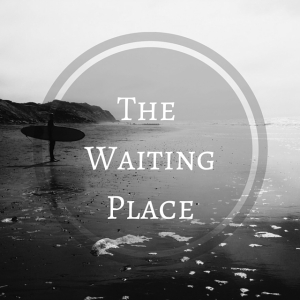“You can get so confused that you’ll start to race down long wiggled roads at a break-necking pace and grind on for miles across weirdish wild space, headed, I fear, toward a most useless place. The Waiting Place…for people just waiting. Waiting for a train to go or a bus to come, or a plane to go or the mail to come, or the rain to go or the phone to ring, or the snow to snow or waiting around for a Yes or No or waiting for their hair to grow. Everyone is just waiting. Waiting for the fish to bite or waiting for wind to fly a kite or waiting around for Friday night or waiting, perhaps, for their Uncle Jake or a pot to boil, or a Better Break or a string of pearls, or a pair of pants or a wig with curls, or Another Chance. Everyone is just waiting.” Dr Seuss, Oh the Places You’ll Go!
The Waiting Place
I am a naturally impatient person, growing up in an impatient generation. My earliest memories of temper tantrums are of my mother putting both hands on my shoulders and saying to me, ‘Patience, Emily!’ I hate waiting for the kettle to boil, I hate the three to five seconds it takes for fuel to start pumping, and don’t even get me started on waiting for a page to load on the internet. My cooking almost always involves the microwave, and whilst I do own a slow cooker, I rarely use it. I don’t garden, do craft or anything that requires time and patience to produce something. My four year old has astutely observed that his Grandma grows beans in the garden, but his mummy buys beans in the shop. To me, waiting time equals wasted time; an infuriating and useless enterprise. Without a doubt my biggest frustrations occurs when life not only interrupts the little everyday things but the big, important, purposed things. When unexpected hiccups push back a project, a dream or a plan, I wonder if it’s worth the effort. When dreams are rejected or ridiculed, I despair and lose hope. When I have to put my dreams aside for a time because the other stuff of life consumes all my time and energy, I sook and whinge and become unbearable to live with. It doesn’t make sense to me that my purpose can be so easily derailed and that it should take so long to achieve my goals. I live in a generation of Masterchefs, Australian Idols and overnight dot-com billionaires. I am so used to seeing success fast tracked that when my own journey slows, stalls and sometimes grinds to a complete stop, my immediate reaction is that something has gone wrong. Add God into the equation, and any interruption to the dreams God has placed on my heart brings not only frustration, but spiritual angst. Why would God not bless something he has purposed?
The Psalms are a series of prayers, songs and poems that deal with all aspects of human experience, from the highest of highs to the lowest of lows. What I find interesting is that about a fifth to a quarter of them wrestle with this concept of waiting on God. Sometimes they are desperate calls to a God that appears distant and unreachable; “How long, O Lord? Will you forget me forever? How long will you hide your face from me?” (Psalm 13:1). Sometimes they are declarations that God alone is the source of our hope; “I wait for the Lord, my soul waits, and in his word I hope; my soul waits for the Lord more than the watchmen for the morning, more than the watchmen for the morning.” (Psalm 130:5-6). Some are reminders that God has been faithful in the past, and will come through for us “I waited patiently for the Lord; he inclined to me and heard my voice” (Psalm 40:1). What interests me is that waiting is not a modern ailment invented by an inpatient generation, but has been experienced by the people of God from the beginning of time. The bible’s understanding of waiting is as relevant now as it was then.
When I read the bible, I seldom pay attention to dates and times (I am too impatient for that). I tend to read each passage as if they flow one after another, with no gaps, interruptions, setbacks or waiting. Recently I have been discovering that this is rarely the case. Although the bible often reads like an action filled blockbuster that jumps from one adventure to the next, in between these stories are often protracted periods of waiting.
Moses spent 40 years being a shepherd before God sent him to Pharaoh.
Abraham waited 24 years for his promised son to be born.
David spent 15 years fighting his enemies before he was crowned King of Israel
Joseph spent 13 years in prison before he was promoted to second in command in Egypt
Noah spent at least 100 years building the ark and waiting for the flood.
These were all great men, with great vision, and great calling on their lives, who all had to endure lengthy periods in The Waiting Place. Slowly, my perspective is being changed. Waiting frustrates me because I live in a world that values success, but I follow a God who values faithfulness, and faithfulness is born and nurtured in The Waiting Place. Paul tells us that we are to ‘rejoice in our sufferings, knowing that suffering produces endurance, and endurance produces character, and character produces hope, and hope does not put us to shame, because God’s love has been poured into our hearts through the Holy Spirit who has been given to us” (Romans 5:3). Waiting doesn’t appear to be a hiccup in God’s plan, but an essential part of the journey. Through my journaling I have observed a pattern that looks a little something like this:
- The Call: Sometimes it’s through an angel, a dream, an anointing, or a deeply imbedded desire in their heart that cannot be ignored.
- Initial Success: The defeat of a giant, a promotion in a prominent household; an initial triumph that appears to confirm the call God had placed on their lives.
- Crisis: Chased from the palace, thrown into prison, a major blunder; somehow the dream is interrupted and this is followed by
- The Waiting Place: The waiting place is long, lonely and often silent. There are few, if any direct interactions with God and few confirmations or if any encouragements from other people. Everything has stalled. There is no indication that the dream will be fulfilled.
- Walking into the Promised Land: God is good. He leads us into the Promised Land. He never breaks His promises. But they never forgot the struggle it took to get there, nor the fear and doubt that was their constant companion in the Waiting Place.
This blog series will examine a handful of the great heroes from the Old Testament their experience in The Waiting Place. Through the use of narrative, I hope to take you on a journey whereby you will discover a purpose and meaning behind your Waiting Place experience. Each blog will also include a series of reflective questions to help guide you in applying these truths to your own life and personal circumstances. Habbakkuk 2:3 says “The vision awaits its appointed time; it hastens to the end, it will not lie. If it seems slow, wait for it, it will surely come, it will not delay.” My hope and prayer for you is that no matter how desolate the Waiting Place seems, no matter how long it has been since you have felt encouragement and confirmation, no matter how dead and buried your dream may be, that you will continue to trust in the God that is faithful to complete the works that he has begun in you.
Emily Fowler

Recent Comments